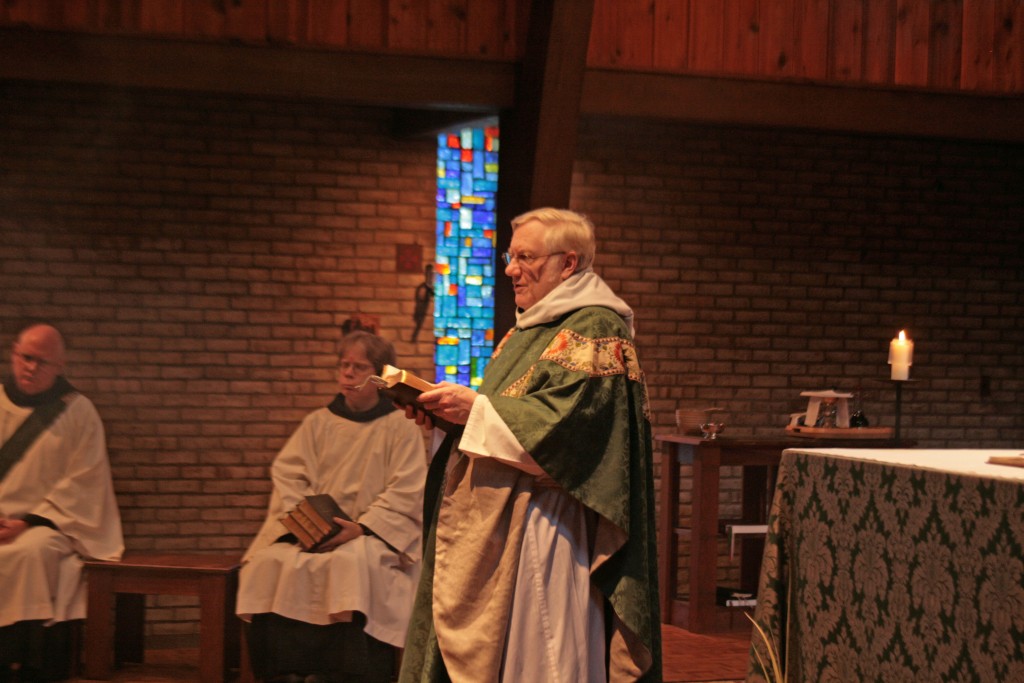Isaiah 11:1-10
Romans 15:4-13
Matthew 3:1-12
December 8, 2019 Abbey Church Abraham
In our first reading this morning, Isaiah tells of a golden age of peace and happiness that will come when one of Jesse’s descendants brings righteousness and faithfulness to us. We identify that person as Jesus, and we look to him to bring the golden age to our private lives and the entire world. However, all we need to do is take a quick look around to realize that we are not in a golden age in our private lives or in the rest of the world. It is not here yet, as much as we pray for it and work for it. Paul knows this as he writes to the Christians in Rome, as we heard in our second reading this morning. He tells them to keep living in harmony and to keep believing, and especially to keep hoping.
We also heard from John the Baptist in our gospel story this morning, telling us to not only hope for the golden age, but to do something about it: “repent…prepare…bear fruit…”. John warned the people that the person coming to bring the golden age might not be what they were expecting, and what he was bringing might not be what they expected. John tells the religious people who were coming to him that their piety would not stand up to what the messiah was bringing. We often think of John the Baptist as someone who merely yelled at people whom he considered hypocrites. Maybe we should really think of him as someone who cared about people and so warned them when he thought they were in danger of missing out on the truth.
But still, those warnings would have come as a shock to all the religious people coming to hear him. The warnings would not only be a shock, they would have seemed unnatural and wrong because they weren’t the same as their religious viewpoint told them the way the world should be. The coming of Jesus should shake us up just as much as it shook them up. The things he brings should make us squirm in our smugness and self righteousness. The prophet Isaiah this morning is a good example this: wolves, leopards, lions and bears are not supposed to pal around with lambs, kids, calves, and cows (they are suppose to eat them). Children are not supposed to play around asp and adder dens, because the natural things those snakes are suppose to do is bite children. Isaiah is telling us that the unexpected one will do unexpected things, so it is in our best interest not to have a list of jobs for Jesus to take care of. He will do what he sees fit when he sees fit.
That might sound scary to us because it takes things out of our control. But really, it should make us feel safe and secure, because it means everything is in Jesus’s hands. There is no place safer than that. So, we need to make sure we are in those hands, instead of always trying to escape because we think we know better than Jesus. By trusting Jesus, the golden age is already within us, because with Jesus, every moment is an eternity of heaven. Then in our turn, we can take that heaven and give it to the world around us.
We are not there yet – that could not be more obvious. So, we wait. Tom Petty says: “the waiting is the hardest part”, so as we wait, we also prepare: we hope and pray, and make peace. We take ourselves out of the center of our petty lives and put God in the center (which in turn makes our lives not-so-petty). Jesus comes on Christmas Day. He can also come into our lives everyday and every moment. All of those comings involve unexpected things, but that is good, because it gets us ready for his next coming. AMEN
